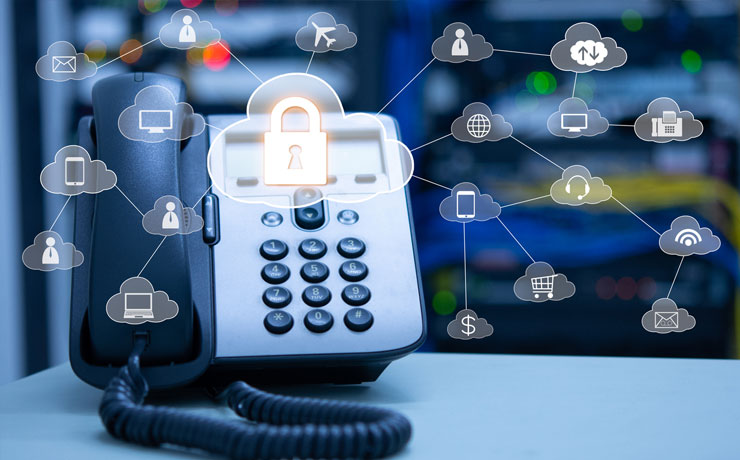VoIP Security Solution in Dubai
Al Yamin is concerned about security issues related to your VoIP and to make sure your VoIP solution is safe and effective. Security is among the biggest worries for companies thinking about switching to VoIP, it is even a concern for businesses that have already made the switch.
Most of the business house has at times cut back on online activity just because they worry about security and privacy, internet security and web-based telephony systems is a concern from a broad perspective.
Some people worry that:
Calls may be recorded without the user's knowledge.
Call logs can escape into the wild.
VoIP accounts can get hacked, and criminals will run up huge bills that account holders will be forced to pay.
Regulation: Will my VoIP solution be compliant with the latest data protection regulation?.
Service disruptions thanks to a Denial of Service (or DoS) attack.
Concern that the software on VoIP phones will get infected with a virus.
Don’t let security exposures destroy the productivity benefits and economic gain that your company can get from an IP phone system. Security risks can always be mitigated, and professionally installed VoIP networks are highly secure. Al Yamin in UAE is specialized in providing high security measures to your VOIP network. From the security point, we ensure all the connections are secured with the trending mechanisms in the security environment.
Some of them are::
Authorization
Transport layer Security
Encrypting Media Files
Authentication
Secure VoIP Business Systems
In the early days of VoIP, there was no big concern about security issues related to its use. People were mostly concerned with its cost, functionality, and reliability. Now that VoIP is gaining wide acceptance and becoming one of the mainstream communication technologies, security has become a major issue. Hence your organization must be alert with the data being flow through the network. We at Al Yamin provides the security in VOIP systems through various encryption technologies and tools.
Most identified threats are:
Identity and Service Theft Eavesdropping is how most hackers steal credentials and other information. Through eavesdropping, a third party can obtain names, password and phone numbers, allowing them to gain control over voicemail, calling plan, call forwarding and billing information. This subsequently leads to service theft.
Viruses and Malware: VoIP utilization involving softphones and software are vulnerable to worms, viruses, and malware, just like any Internet application.
DoS (Denial of Service): A DoS attack is an attack on a network or device denying it of a service or connectivity. It can be done by consuming its bandwidth or overloading the network or the device’s internal resources.
SPIT (Spamming over Internet Telephony): Spamming is actually sending emails to people against their will. Spamming in VoIP is not very common yet, but is starting to be, especially with the emergence of VoIP as an industrial tool.
Call Tampering: Call tampering is an attack which involves tampering a phone call in progress. For example, the attacker can simply spoil the quality of the call by injecting noise packets in the communication stream.
Man-in-the-Middle Attacks: VoIP is particularly vulnerable to man-in-the-middle attacks, in which the attacker intercepts call-signaling SIP message traffic and masquerades as the calling party to the called party, or vice versa.

